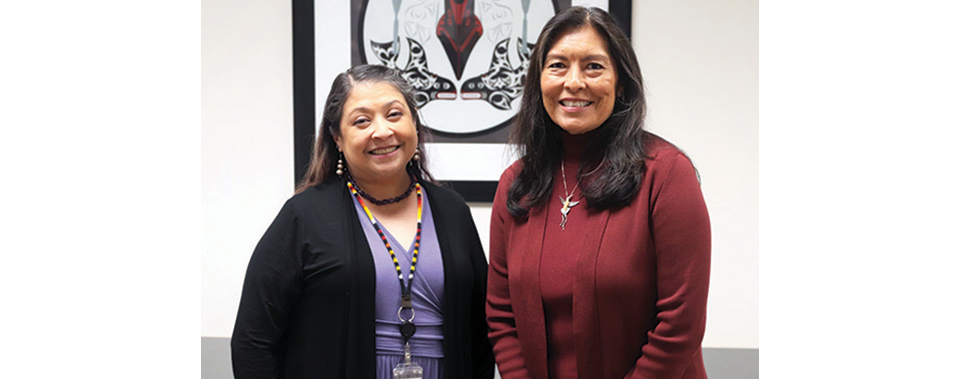
By Micheal Rios, Tulalip News
In a historic visit, federal judges from the Ninth Circuit Court of Appeals Committee on Tribal and Native Relations recently visited Tulalip Tribal Court. The purpose of their visit was to inquire about and observe firsthand how holistic justice is practiced within a tribal legal system. This rare and significant event highlighted the growing recognition of tribal justice systems and their potential impact on broader judicial practices.
“The Ninth Circuit has by far the largest populations of Indigenous peoples and Indian nations as compared to other circuits in the nation,” said Judge Diane Humetewa, Chair of the Tribal and Native Relations Committee. Judge Humetewa (Hopi) made history in 2014 when she became the first Native American woman to ever serve as a federal judge. “Eighty percent of Indian Nations’ tribal population is within the 15 districts of the Ninth Circuit. As one of the objectives in the Committee’s charter states, we seek to better understand the common concerns related to judicial functions and open communication.”
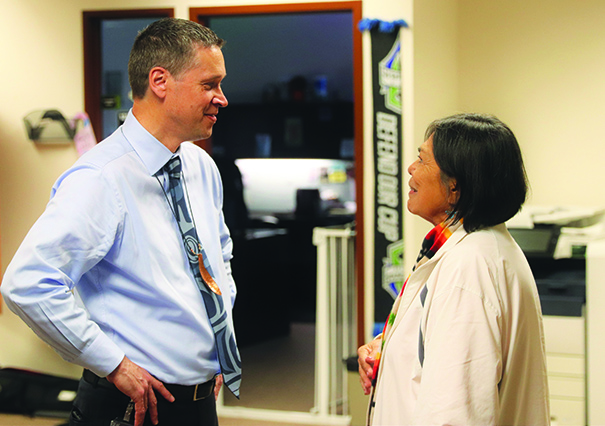
The well-respected judicial visitors were welcomed by Chairwoman Teri Gobin, special projects manager Patti Gobin, Tribal Court executive director Tate London, and Tulalip’s current presiding judges, the honorable Meredith Drent, Christine Frausto, Peter Boome, Mark Pouley and Thomas Miller..
Spanning the morning of March 28, the visit took place at Tulalip Tribal Court, a courthouse within the jurisdiction of the Tribe’s 22,000-acre reservation that is governed by its own laws and justice system. The Ninth Circuit Court of Appeals plays a crucial role in legal matters affecting tribal communities. By engaging directly with Indigenous legal practitioners, the Ninth Circuit judges sought to better understand the nuances of tribal justice systems and how they differ from the conventional colonial model.
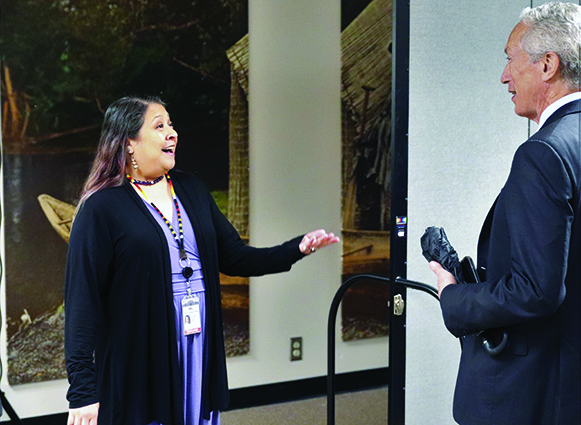
Unlike the traditional U.S. court system, which often prioritizes punishment and incarceration, many tribal courts emphasize restorative justice – an approach that seeks to heal relationships, rehabilitate offenders, and restore balance within the community. The visiting judges learned of Tulalip Court’s procedures that incorporate mediation, community involvement, and cultural traditions, such as talking circles and elder guidance.
“Restorative justice is about addressing harm, not just punishing crime,” explained Chief Judge Meredith Drent of the tribal court. “Tulalip Court’s services to the community include Healing to Wellness, Mental Wellness, and Family Wellness Court, Tulalip Office of Civil Legal Aid (TOCLA), Probation, and Tribal Court Elders Panel. These services are dependent upon judges, case managers, and service providers who are well-versed in cultural sensitivity and are driven to collaborate and partner with other necessary programs in order to heal the individual and mitigate future harm.”
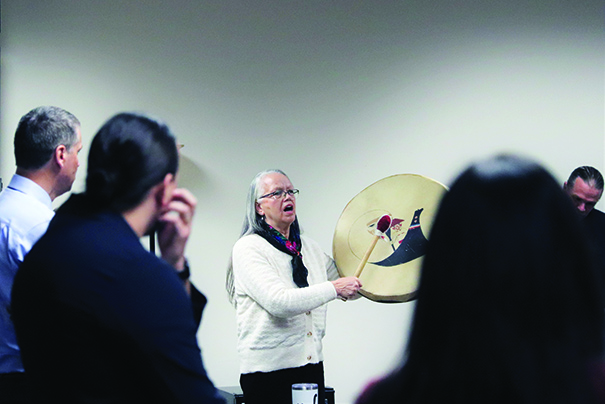
For the Ninth Circuit committee members, the experience provided valuable insight into a justice system that is both effective and culturally grounded. In many Tulalip Court cases, holistic practices have led to lower recidivism rates and stronger community ties, outcomes that have drawn increasing interest from legal scholars and policymakers.
With increasing discussions on criminal justice reform, restorative justice models, such as those seen in tribal courts, are attracting national attention. Some advocates argue that restorative justice principles could be integrated into the U.S. legal system to address issues like mass incarceration, youth rehabilitation, and community healing.
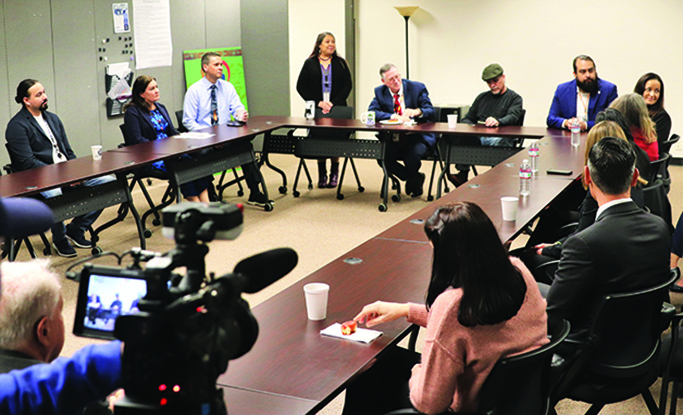
As the Ninth Circuit’s visit concluded, both tribal and federal judges expressed optimism about future collaboration and dialogue. “We’re hopeful for the opportunity to develop a collaboration with the Federal District Court for Western Washington,” said Tulalip Chief Judge Drent. “A collaboration where we can share resources and knowledge, but also develop methods so that when people interact with the federal system, they have ways to come home and put their best foot forward if there is an opportunity to do so.”
The honorable Judge Humetawa added, “Meeting with the Tulalip Chief Judge, Tribal Judges and court staff provided a rare opportunity for federal judges in the Western District Court of Washington and members of the Ninth Circuits Committee on Tribal and Native Relations. Identifying areas of mutual concern in adjudicating cases that arise from tribal communities, such as Tulalip, can only happen when we meet in this way.”